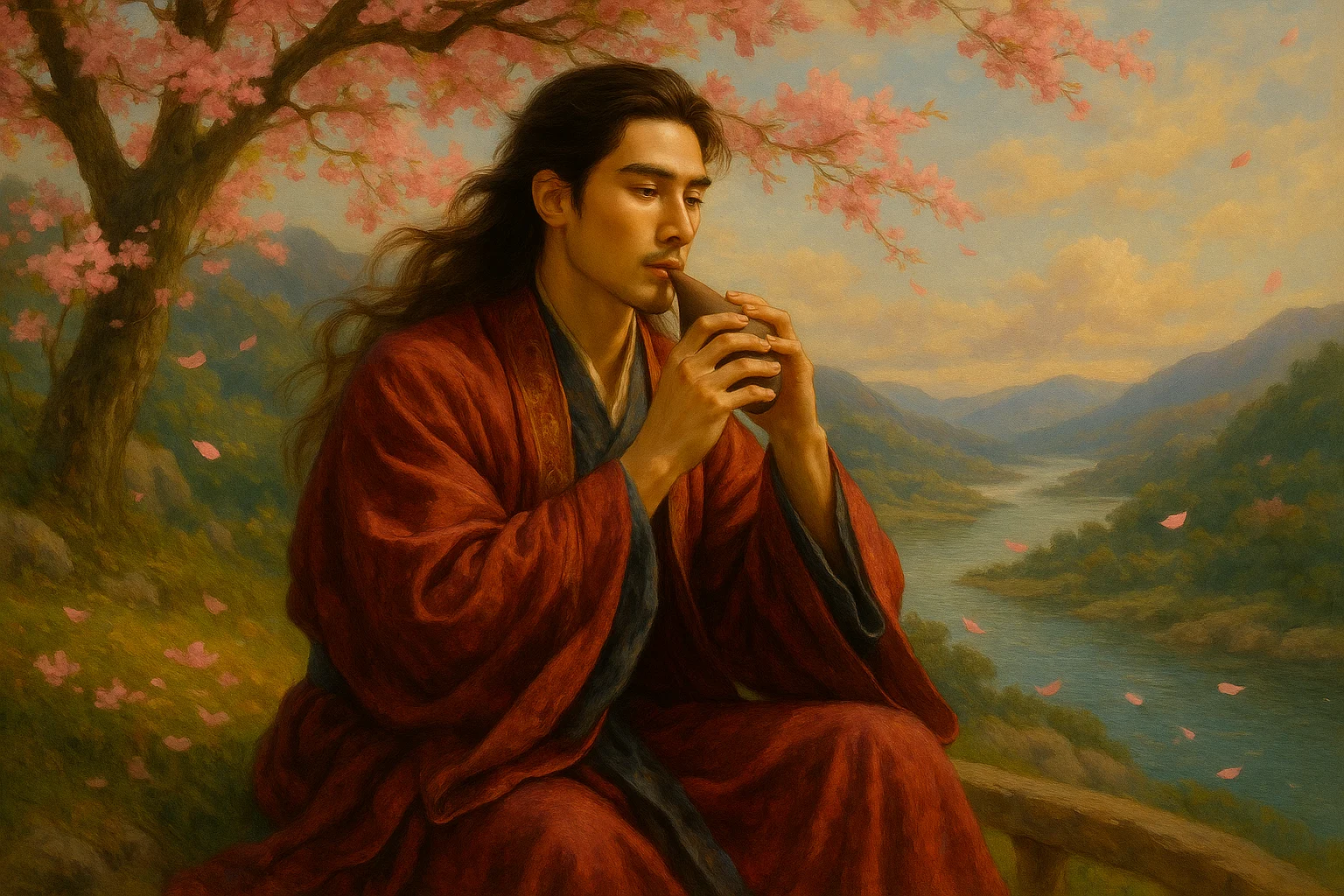Don't let the songstress sing my songs anew!
Most of them are farewell poems for you.
Tomorrow again we'll part by riverside,
Alas! At moonset when outflows the tide.
Original Poem
「重赠乐天」
元稹
休遣玲珑唱我诗,我诗多是别君词。
明朝又向江头别,月落潮平是去时。
Interpretation
This heptasyllabic quatrain by Yuan Zhen expresses profound affection and reluctance at parting with his friend Bai Juyi. Through vivid depictions of their present moment and premonitions of impending separation, the poet conveys deep sorrow at their farewell. The work reflects the profound friendship between the two literary giants while poignantly capturing life's impermanent reunions and partings.
First Couplet: « 休遣玲珑唱我诗,我诗多是别君词。 »
Xiū qiǎn línglóng chàng wǒ shī, wǒ shī duō shì bié jūn cí.
Ask not Linglong to sing my verses anew, For most are songs of bidding you adieu.
This couplet reveals the poet's aversion to hearing his own parting poems performed. The request to silence the singer Linglong stems from the painful awareness that his verses predominantly dwell on separation. The word "adieu" (别君词) carries the weight of finality, transforming the act of singing into an unbearable reminder of impending loss. Through this intimate refusal, Yuan Zhen exposes the raw nerve of farewells revisited.
Second Couplet: « 明朝又向江头别,月落潮平是去时。 »
Míngzhāo yòu xiàng jiāng tóu bié, yuè luò cháo píng shì qù shí.
At dawn we'll part where river waters flow - The waning moon, still tides mark time to go.
Here natural elements become timekeepers of sorrow. "Waning moon" (月落) suggests the dying hours of their companionship, while "still tides" (潮平) mirror emotional resignation. The riverbank setting transforms into a liminal space between presence and absence. What begins as objective description ("dawn…river") culminates in inescapable destiny ("mark time to go"), where celestial and aquatic movements conspire to enforce human separation.
Holistic Appreciation
Through economical yet rhythmic language, the poem delicately traces the poet's deepening sorrow. The initial plea to stop the singing reveals his reluctance to dwell on farewells, while the riverbank parting scene foreshadows fresh sorrow. Yuan Zhen's emotions progress from resisting nostalgic reminders to confronting imminent separation, culminating in nature's imagery that elevates the work to a realm of timeless melancholy.
Artistic Merits
The poem's vernacular simplicity conveys authentic emotion with remarkable nuance. Its ingenious structure moves from rejecting nostalgic poetry to anticipating separation, concluding with nature's symbolic farewell. Harmonious phonetics - the resonance between "verses" (诗), "parting" (别) and "waning moon/still tides" (月落潮平) - creates a cyclical rhythm that amplifies the plaintive tone, leaving lasting emotional and auditory resonance.
Insights
In its concise verses and natural imagery, the poem crystallizes the universal ache of separation. It reminds us to cherish time with loved ones - each modern farewell mirroring the poet's experience, inviting reflection on life's transience. Through such partings, we may better appreciate human connections' fragility and worth, much as Yuan Zhen's words have guided readers to this understanding across twelve centuries.
Poem translator
Xu Yuanchong (许渊冲)
About the poet

Yuan Zhen (元稹), 779 - 831 A.D., was a native of Luoyang, Henan Province, who was poor in his early years, but later became an official and finally died of a violent illness. He was friendly with Bai Juyi and often sang with him, and was known as “Yuan Bai”.












